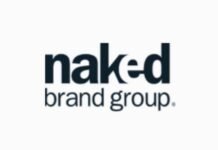The term ‘Agile’ was first introduced over two decades ago before becoming mainstream. Agile was born out of a wish to improve the traditional project management approach. Digital transformation has turned customer requirements dynamic and stringent. Traditional waterfall approaches to product management fail to meet the dynamic customer requirements. Companies are looking to develop a mindset to counter dynamic changes effectively. In line with this trend, various companies throughout the world have adopted Agile, which is continuously evolving to reap its immense benefits.
Agile is a collection of practices that share common values or principles to respond quickly to varying requirements. Experts believe that it is an approach to software development that stresses on continuous delivery of working software built in quick iterations. Agile is a way of thinking about collaboration and workflows and refers to a set of values that guides our choices regarding what we develop and how we develop. Organizations that adopt Agile practices emphasize quickly delivering small pieces of working software to enhance customer satisfaction.
With Agile becoming a mainstream methodology, a few prestigious organizations started offering Agile certifications to help people learn the Agile principles from scratch and validate their knowledge. The top institutes offering Agile certifications include Project Management Institute (PMI), Scrum Alliance, Scaled Agile Academy, EXIN, Scrum.org, and the International Consortium for Agile. Apart from these institutes, some online training providers also offer agile certification on passing their comprehensive courses, like Simplilearn Agile certification.
This article will tell you more about Agile certifications and how much experience do you need to achieve them.
Top Agile Certifications
Agile certifications can pave your way to a rewarding career in the long run. Organizations today believe that Agile is critical to business success and hence look for professionals who can validate their skills through an Agile certification. Discussed below are your top options when seeking an Agile certification and the experience requirements associated with them.
Agile Scrum Foundation by EXIN
This certification is designed to test an individual’s foundational knowledge of agile principles and scrum methodology. Professionals working in many ways to improve software development, project management, and IT service management find this certification quite beneficial. Some of the important concepts that it covers include the Agile way of thinking, Scrum practices, Scrum planning and estimation, and Monitoring Scrum projects.
Exam – You need to attempt a one-hour test consisting of 40 multiple-choice questions. The passing score is 65%
Experience requirements – You do not need any prior experience for taking the Agile Scrum foundations exam. It is recommended to take online training offered by EXIN accredited education providers to prepare for the exam.
PMI – Agile Certified Practitioner (ACP)
If you wish to demonstrate that your Agile knowledge runs deep, then take this ACP certification offered by PMI. The certification spans many approaches to agile such as Kanban, Scrum, extreme programming, Lean, and test-driven development. It is evidence of your hands-on, real-world experience and skills as part of the agile team.
Exam – It is a three hours test that includes 120 multiple-choice questions. Applicants must earn 30 professional development units (PDUs) in agile topics every 3 years to maintain the PMI-ACP.
Experience requirements – You are required to have 12 months of general project experience within the last 5 years. Additionally, you must have 8 months of agile project experience within the last 3 years. A total of 21 contact hours of training in agile practices is also mandatory.
Certified Scrum Master (CSM) by Scrum Alliance
Scrum is, by far, the most widely used Agile framework, and a Scrum certification can surely place you ahead of your peers. This certification gives you an in-depth knowledge of Scrum and how to apply it in your team and organization. Whether you are a beginner in the Agile world or have experience using Scrum, CSM helps you gain the skills required to expertly take your team to success.
Exam – The associate CSM certification exam has a 60-minute time limit in which you need to attempt 50 questions. You will pass the exam if you answer at least 37 out of 50 questions correctly.
Experience requirements – There are no experience requirements to take the CSM exam. Applicants are recommended to be familiar with the principles of Scrum and its overall process. However, it is mandatory to attend the two-day CSM training mentored by a Certified Scrum Trainer (CST). You can find the list of training providers on the Scrum Alliance website itself. All CSM courses offer at least 14 hours of interactive training.
Certified SAFe Agilist by Scaled Agile
A Certified SAFe Agilist is a Scaled Agile Framework enterprise leadership professional who is part of a Lean-Agile transformation. The certification demonstrates that you are able to apply SAFe to scale Lean and Agile development in the enterprise. You will also learn how to plan and successfully execute Program Increments. It is ideal for business analysts, portfolio managers, change agents, agile coaches, and release train engineers.
Exam – You need to take the SAFe 5 Agilist exam, which consists of 45 multiple-choice questions, to achieve the certification. The time allowed is 90 minutes, and the passing score is 77%.
Experience requirements – You must have over 5 years of experience in software development, testing, business analysis, product or project management for this certification. Experience in Scrum is also required.
Bottom Line
Now that you have a clear idea of how much experience you require for different Agile certifications select which one best suits your career needs and start preparing for it. Many Agile certifications require candidates to attend training from Agile coaches or similar trainers before applying for the associated exam. So, even if you can do self-study, it is better to take up an online Agile training course from accredited training providers to gain an in-depth understanding of Agile and Scrum. Agile certifications will increase your employability and help you become eligible for more ambitious roles.

































